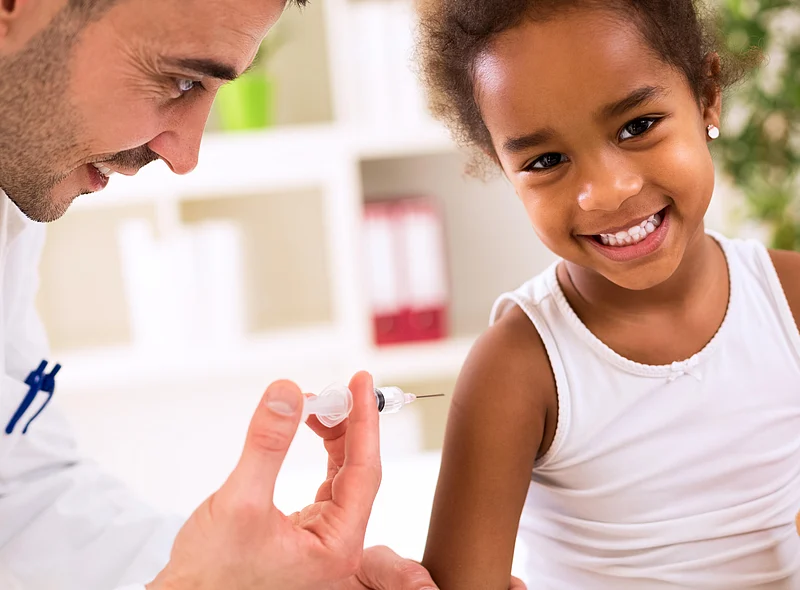(330) 876-1228
8507 Main StreetKinsman, OH 44428
(330) 876-1229

New U.S. data based on nearly 9 million doses of the Pfizer-BioNTech COVID-19 vaccine delivered to kids ages 5 to 11 shows no major safety issues, according to researchers at the U.S. Centers for Disease Control and Prevention.
The vaccine was first authorized for use in this age group in October. Now the new study shows that these "preliminary safety findings are similar to those described in the clinical trials" that led to the vaccine's emergency approval, according to a team led by Anne Hause of the CDC's COVID-19 Response Team.
The report was based on data collected by the agency's Vaccine Adverse Reporting System (VAERS). It relies on smartphone messages from parents and other guardians of children to alert the CDC of any health "events" occurring after a child's vaccination.
During a six-week period after the shots' approval (Nov. 3 through Dec. 19), VAERS received 4,249 reports of adverse events after Pfizer vaccination in kids ages 5-11.
The vast majority -- 97.6% -- "were not serious," Hause's team said, and consisted largely of reactions often seen after routine immunizations, such arm pain at the site of injection, or some transient fatigue or headache.
Parents "should be advised that local and systemic reactions [like these] are expected after vaccinations," the CDC investigators said.
More severe effects were exceedingly rare. Out of about 8.7 million vaccinations delivered during the study period, 100 such reports were received by VAERS. They included 29 reports of fever, 21 reports of vomiting, and 10 serious reports of seizure, although in some of these seizure cases, other underlying factors were potentially involved, the CDC team said.
There were only 15 "preliminary reports" of the rare heart condition known as myocarditis, an inflammation of the heart that has also been noted, in rare cases, among teens and young people who've received the COVID vaccine.
Two girls, aged 5 and 6, who'd received the Pfizer vaccine died during the study period. Hause and colleagues noted that both children "had complicated medical histories and were in fragile health before vaccination," and they added that "none of the data suggested a causal association between death and vaccination."
Although pediatric deaths from COVID-19 remain rare, hundreds of American children have died from the illness since the pandemic began. So, Hause's team emphasized that "vaccination is the most effective way to prevent COVID-19 infection" in kids.
Dr. Henry Bernstein is a pediatrician at Cohen Children's Medical Center in New Hyde Park, N.Y. Reading over the new report, he said the new study "clearly supports giving the vaccine to children 5-11 years of age.
"Yes, there can be local [for example, redness, soreness or swelling at the site of the shot] and systemic [fever, tiredness, headache] reactions after a child receives the vaccine, especially after the second dose," Bernstein said. "In fact, about one-third to one-half of children may experience some of these side effects."
However, "parents should know that the side effects generally are not serious and tend not to last very long at all," Bernstein said.
Of course, some parents may be concerned about the rare risk for myocarditis. But "these data are incredibly reassuring [on] how rare this condition is in 5- to 11-year-old children, how mild the myocarditis is if it does occur, and how quickly the children tend to recover," Bernstein said. "The vaccine also has not caused heart attacks or death."
His advice? "Please have your 5- to 11-year-old children vaccinated as soon as possible," Bernstein said. "This is the best way to keep them (and their families) safe and well during the ongoing pandemic."
The new study was published in the Dec. 31 issue of the CDC journal Morbidity and Mortality Weekly Report.
More information
Find out more about child vaccination for COVID-19 at the American Academy of Pediatrics.
SOURCES: Henry Bernstein, DO, MHCM, pediatrician, Cohen Children's Medical Center, New Hyde Park, N.Y.; Morbidity and Mortality Weekly Report, Dec. 31, 2021
